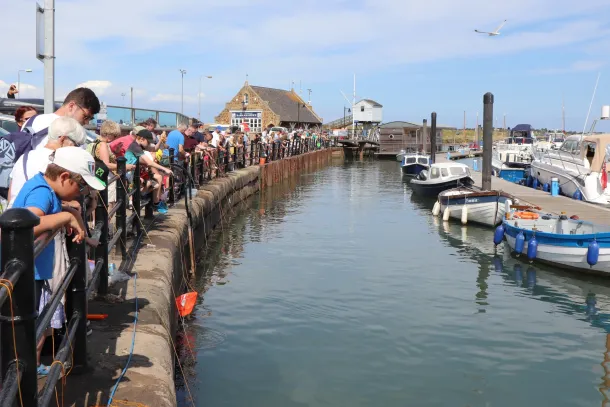New 60-day
Temporary Campsites
Permitted development for temporary
campsites to extend to 60 days
Historically, pop-up campsites could be generated almost anywhere. So long as you had a field, you could run a temporary campsite for at least 28 days across the year. This was extended to 56 days during Covid, as tourism industries needed a shot in the arm, and camping was really the only accommodation where Covid restrictions could be safely imposed.
This method required very little input from local planning authorities. No prior consent required, no need to notify anyone, so long as you stick within this 28-day limit, you're legally allowed to use your field for pretty much whatever you want to for 28 days.

Having operated a caravan and camp site for a few years now, we've not needed to rely on the permitted devlopment since 2017
However, this will now extend to 60 days as of July 26th, according to new legislation laid out in The Town and Country Planning Order 2023. This amendment seeks to give more flexibility to landowners to operate temporary campsites, and will no doubt be welcome since the Covid-period 56-day allowance was reduced back down to 28 days in 2021.
The essential part of this act is a new permitted development that will allow temporary campsites for up to 50 pitches for 60 days per year. This brings the number of days permitted back up to and beyond Covid levels, giving landowners two months of the year where they can host a temporary campsite. What's more, Campervans and Motorhomes will now be put under a separate classification from caravans, and instead be classed as "motor vehicles designed or adapted for human habitation" under camping.

Covid impacted tourism industries quite badly, however the 58-day permitted campsites during it helped campgrounds to stay afloat
60-days permitted development - A double-edged sword
On the surface, this is good! The usual season for tourist industries goes over July and August, so giving developers a way to open temporary campsites across both these months will be a boon to multiple industries - not just in camping itself, but also in tourist industries that would serve these visitors.
What's more, campervans and motorhomes have been classed as caravans since the 1960s. So this new definition as a "motor vehicle designed or adapted for human habitation", and permitting them as camping vehicles is a big step forward in modernising camping, and making it easier for sites to host such vehicles will only increase opportunities for sites.

Motorhomes and Campervans have been classed as caravans for over 80 years
However, deeper down, this legislation has the possiblity to make temporary campsites more restrictive. One of the conditions on running a temporary campsite is that you "must notify the local planning authority in writing" and the local authority must provide prior approval. This must be done each year the landowner wants to run the campsite for these 60 days.
This comes with the obvious issue of giving local authorities much more control over your site for the time it operates. The days when you could simply set up a temporary campsite without prior approval have gone the way of the dinosaurs. Now extinct, this new legislation has taken its place, although I'm hesitant to call it an "evolution", at least at the moment.

It might not be all smiles if the local governments always get their way
If you've been reading our most recent blog posts, you'll be able to see why. Our now well-documented struggles with the council show a potential way that this legislation might not be all roses, as one might hope. Not to say that every county council in the country is as curmudgeonly and constricting as West Norfolk's (at least I would hope they aren't), but the fact is that this legislation gives planning authorities and councils the final say in what goes.
Gone are the days where a farmer could buoy their dwindling profits without any interference, or someone with an otherwise useless field could put it to a practical use. These new rules make it a necessity to go through the local council, giving them carte blanche to deny or restrict pop-up sites as they please.
Ideally, this new legislation is a boon to rural communities still recovering after a string of lockdowns and restrictions. It would mean longer operational periods for pop-up campsites to really capture the full swing of the summer holidays without the need to go through the even more extensive process of becoming a permanent campsite or obtaining a license. This would especially compliment people who would have camping as more of a secondary business to get a bit of extra income.
However, sometimes the council is not ideal. Sometimes planning authorities don't act ideally or how they should, creating cases that ought to be cut-and-dry but are dragged out and turned against the developer based on the whims of a local authority.
I would dearly like to celebrate these new permitted development laws. But my experience has made me cynical, and this cynic is distrustful of any legislation that makes plans have to pass through councils.



